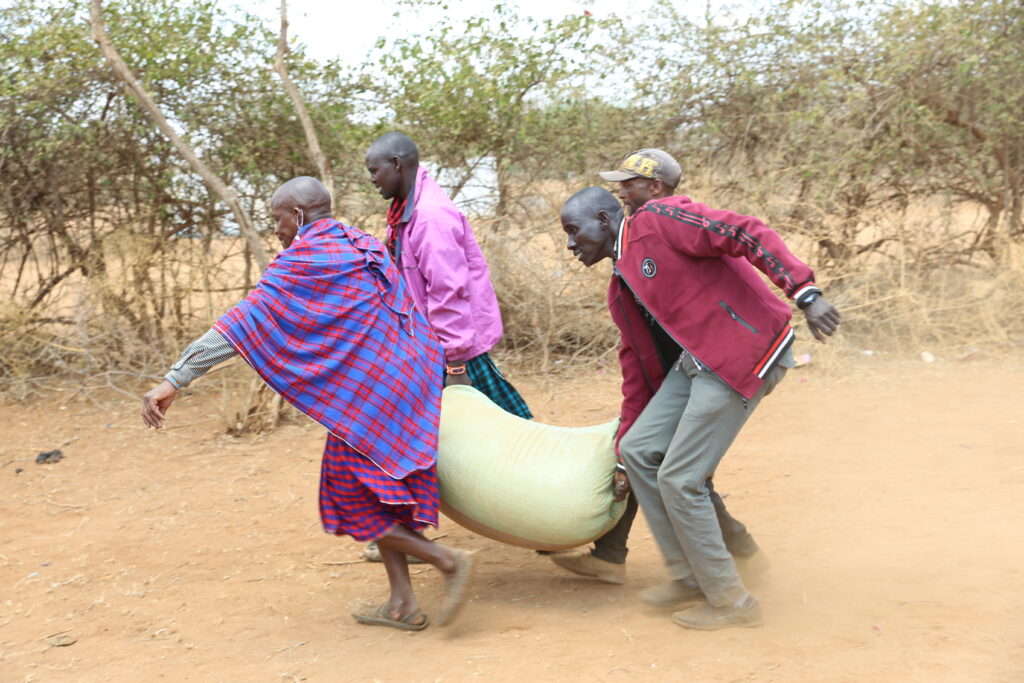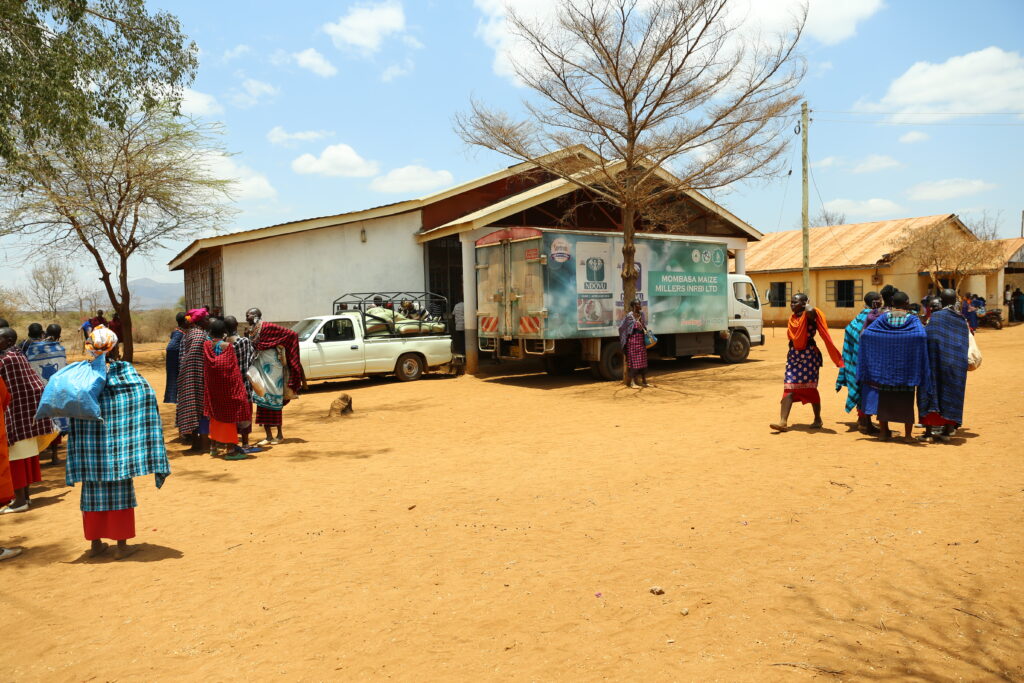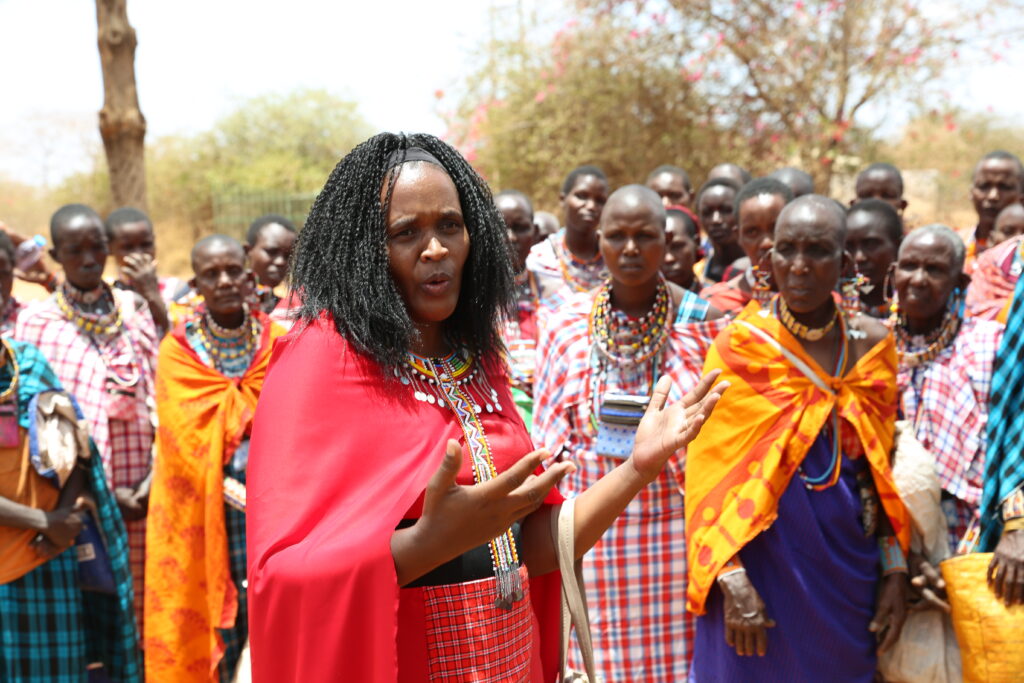East Africa has been suffering from severe drought for two years in a row. This is one of the numerous impacts of climate change that drastically affects people who have least contributed to it. Earlier this month, Enkishon Indigenous Initiative, a community-based organization devoted to supporting Maasai pastoralists in southern Kenya, organized a food delivery in Kajiado County, with support from Land is Life.

Lack of rain across East Africa has caused one of the most severe droughts in recent history. People are currently experiencing the fifth failed rainy season in a row, with critical and long-lasting consequences.
Pastoralist communities, such as the Indigenous Maasai in Kenya, have had to give up their nomadic way of life as all pastures have dried out. They have already lost millions of cattle because of lack of feed, and the remaining are starving. Besides hunger, the situation is causing depression among the Maasai, to whom the cattle are the backbone of their identity, culture, and livelihoods. They love their cattle and are hesitant to let them go.
“In order to eat we need to let our cattle go, and take care of our children. Otherwise our children will have nothing to eat.“ – Maasai senior community leader
Earlier this month, to respond to the drastic situation, Enkishon Indigenous Initiative, a community organization dedicated to supporting Maasai women and children in Kajiado County, Southern Kenya, organized a truckload of food delivered to the Maasai community of Eluanata. The delivery, supported by Land is Life, does not solve the tragedy but provides temporary relief to the community.


In response to the long-term effects of drought, Jemimah Kerenge, Maasai woman and Land is Life’s Indigenous-Led Grantmaking Program Director thinks that combining the pastoralist way of life with small-scale farming, based on principles of agroecology, while reducing the sizes of the herds, could be an option. It would reduce the pastoralists’ dependence on cattle as the sole source of livelihoods and provide other potentially self-sustaining food sources.
The prolonged drought is just one of the numerous impacts of climate change that we are currently witnessing. The ones who have least contributed to climate change, are the most vulnerable to it, and the first to be impacted. As world leaders are working on policies to accelerate a green shift, Land is Life would like to remind them of the importance of placing the rights of Indigenous Peoples at the core of these efforts. Too often are projects that are intended to be sustainable, lead to rights violations of Indigenous Peoples. Last week, Land is Life was one of the more than 200 signatories of an open letter asking the Secretariat of the United Nations Framework Convention on Climate Change (UNFCCC) and State parties to put human rights at the center of the energy transition at COP27. You can read the letter here.